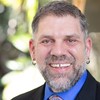This three-hour live virtual training includes an introduction to key terms and concepts (such as gender identity and sexual orientation), treatment considerations for clinical work, and addressing the specific needs of lesbian, gay, bisexual, and transgender individuals.
1. Recall two factors that might contribute to substance use among LGBT clients.
2. Identify two barriers for health screening and medical care for LGBT clients.
3.Recognize two health issues/behaviors for which LGBT clients have a higher risk.
4.Identify two strategies service providers can implement to create affirming environments for LGBT people.
5.Specify one treatment approach that has been shown effective with LGBT populations.
6.Explain the concept of “cultural humility” and theorize at one (1) way that it differs from “cultural competency.”
7.Analyze two strategies for creating culturally affirming interactions.
Registrants who attend the entire training will be eligible to receive 3 NAADAC CEUs.
Providers in contact with LGBT individuals, including mental health and substance use disorder clinicians, HIV providers, state, local and county government employees, primary care providers, public health practitioners, prevention specialists, community-based organizations, school teachers and counselors.

Thomas Freese, PhD
Director of Training, UCLA Integrated Substance Abuse Programs
Director, Pacific Southwest Addiction Technology Transfer Center, HHS Region 9
Co-Director, Center of Excellence on Racial and Ethnic Minority YMSM and Other LGBT Populations